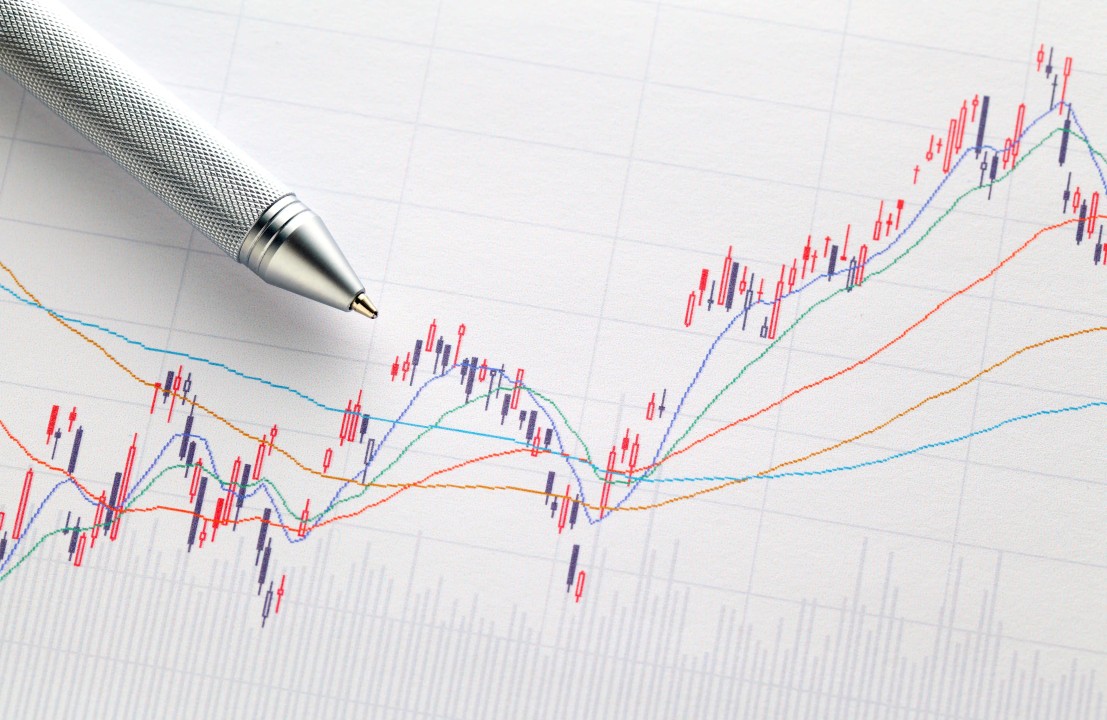Analyzing The Dax: The Influence Of Bundestag Elections And Corporate Performance

Table of Contents
Pre-Election Volatility and Market Sentiment
The period leading up to a Bundestag election is often marked by increased uncertainty, directly impacting the DAX. This uncertainty stems from several factors:
Increased Uncertainty Before Elections
- Increased speculation and media coverage: The intensified media scrutiny and political debate surrounding the election create an environment ripe for speculation about potential policy changes. This heightened uncertainty can translate into increased market volatility, with the DAX experiencing more significant price fluctuations than during more stable periods.
- Potential policy changes and their impact on different sectors: Different political parties advocate for contrasting economic policies. Uncertainty regarding which party will form the government and what policies will be implemented creates significant risk for investors. Sectors like renewable energy, automotive, and finance are particularly vulnerable to shifts in government priorities. For example, a shift towards stricter environmental regulations could negatively impact the automotive industry's profitability in the short term, while increased investment in renewable energy infrastructure could boost related companies.
- Examples of past elections and their preceding market fluctuations: Analyzing past elections reveals a recurring pattern: Increased volatility in the months leading up to the election. For example, the 2017 election saw significant fluctuations in the DAX related to concerns over the rise of the AfD party and the potential impact on the Eurozone. Studying these historical patterns can help predict future market behavior.
Investor Behavior in the Run-up to Elections
Investor behavior in the lead-up to elections is characterized by a heightened sense of risk aversion.
- Portfolio adjustments and hedging strategies: Investors often adjust their portfolios, shifting towards less risky assets like government bonds to mitigate potential losses. Hedging strategies, such as buying put options, become more prevalent.
- The role of market analysis and predictions in investor decision-making: Sophisticated market analysis and election forecasting become critical during this period. Investors rely heavily on expert opinions and predictions to inform their investment decisions, seeking to minimize potential negative impacts.
- Impact of pre-election polls and their influence on market sentiment: Pre-election polls significantly influence market sentiment. A strong showing by a party perceived as business-friendly can boost market confidence, while the rise of a populist or protectionist party may lead to selling pressure and increased volatility.
Post-Election Market Reactions and Policy Impacts
The announcement of election results triggers immediate and often significant market reactions, followed by longer-term adjustments based on the new government's policies.
Immediate Market Response to Election Results
- Analysis of past election outcomes and their immediate effects on the DAX: Historically, the DAX has responded positively to elections resulting in stable coalition governments with clear policy platforms. Conversely, uncertain outcomes or governments perceived as economically unstable can lead to immediate declines.
- The role of coalition negotiations and their impact on market stability: The period of coalition negotiations following an election can itself create uncertainty. Prolonged negotiations or difficulties in forming a stable government can negatively impact market stability and investor confidence.
- Examples of winning party manifestos and their potential influence on specific sectors: Analyzing the winning party's manifesto provides insight into potential future policies. For example, a commitment to investing in renewable energy would positively impact related DAX companies, while a focus on fiscal austerity could negatively impact consumer-oriented sectors.
Long-Term Effects of New Government Policies
The long-term impact of a new government's policies on the DAX is substantial and multifaceted.
- Fiscal policies and their impact on corporate taxation and investment: Changes in corporate tax rates, government spending, and investment incentives directly impact corporate profits and investment decisions.
- Regulatory changes affecting various sectors (e.g., environmental regulations, labor laws): New regulations can significantly affect the profitability and competitiveness of different sectors. Stricter environmental regulations, for example, could challenge the automotive industry, while changes to labor laws could impact employment costs across various sectors.
- Examples of successful and unsuccessful policy implementations and their long-term consequences on the DAX: Examining the long-term effects of past government policies on the DAX provides valuable insights into the effectiveness of different approaches and their impact on economic growth.
Analyzing Specific Sectors' Sensitivity to Bundestag Elections
Different sectors within the DAX exhibit varying degrees of sensitivity to Bundestag elections and subsequent policy shifts.
Automotive Industry
The automotive industry, a cornerstone of the German economy, is highly sensitive to political decisions.
- Impact of government incentives and regulations on electric vehicle adoption: Government support for electric vehicles (EVs) can significantly influence the industry's performance. Incentives can drive demand and boost the profitability of EV manufacturers, while restrictive regulations could impact the production and sale of conventional vehicles.
- Trade negotiations and their influence on export-oriented businesses: The German automotive industry heavily relies on exports. Trade negotiations and agreements significantly influence its profitability and competitiveness in global markets.
Renewable Energy Sector
The renewable energy sector is particularly sensitive to government support and policy changes.
- Government subsidies and investment in renewable energy infrastructure: Government subsidies and investments play a vital role in the sector's growth. Changes in these policies directly impact the profitability of renewable energy companies.
- Impact of climate change policies on the sector's growth and profitability: Ambitious climate change policies can drive significant growth in the sector, while a lack of commitment to renewable energy could hinder its development.
Financial Services
The financial services sector is influenced by government policies on banking, interest rates, and financial regulations.
- Impact of interest rate changes and monetary policy: Interest rate changes implemented by the European Central Bank (ECB) significantly impact the profitability of financial institutions.
- Regulatory changes affecting banking practices and consumer finance: New banking regulations and consumer finance laws directly affect the operations and profitability of banks and financial service providers.
Conclusion
The DAX's performance is inextricably linked to Bundestag elections and subsequent government policies. Understanding this dynamic is crucial for investors aiming to navigate the German stock market effectively. Pre-election uncertainty usually leads to volatility, while post-election policy changes can significantly impact various sectors for the long term. By meticulously analyzing election outcomes and associated policy implications, investors can better anticipate and manage risks, potentially optimizing their DAX investments. Continue your in-depth research and analysis of the DAX, remaining informed about upcoming Bundestag elections and their likely impact on German corporate performance. Effectively analyzing the DAX requires a nuanced understanding of the political landscape and its influence on the German economy.

Featured Posts
-
 Eo W Investigation Launched Following Pfcs Complaint Against Gensol Engineering For Falsified Documents
Apr 27, 2025
Eo W Investigation Launched Following Pfcs Complaint Against Gensol Engineering For Falsified Documents
Apr 27, 2025 -
 Ariana Grandes Stunning Transformation Insights Into Professional Hair And Tattoo Services
Apr 27, 2025
Ariana Grandes Stunning Transformation Insights Into Professional Hair And Tattoo Services
Apr 27, 2025 -
 Local Jeweler Assists Nfl Players In Career Transitions
Apr 27, 2025
Local Jeweler Assists Nfl Players In Career Transitions
Apr 27, 2025 -
 The Blaugrana Promise Ramiro Helmeyers Commitment
Apr 27, 2025
The Blaugrana Promise Ramiro Helmeyers Commitment
Apr 27, 2025 -
 Brazil Game Justin Herbert And The Chargers 2025 International Matchup
Apr 27, 2025
Brazil Game Justin Herbert And The Chargers 2025 International Matchup
Apr 27, 2025
